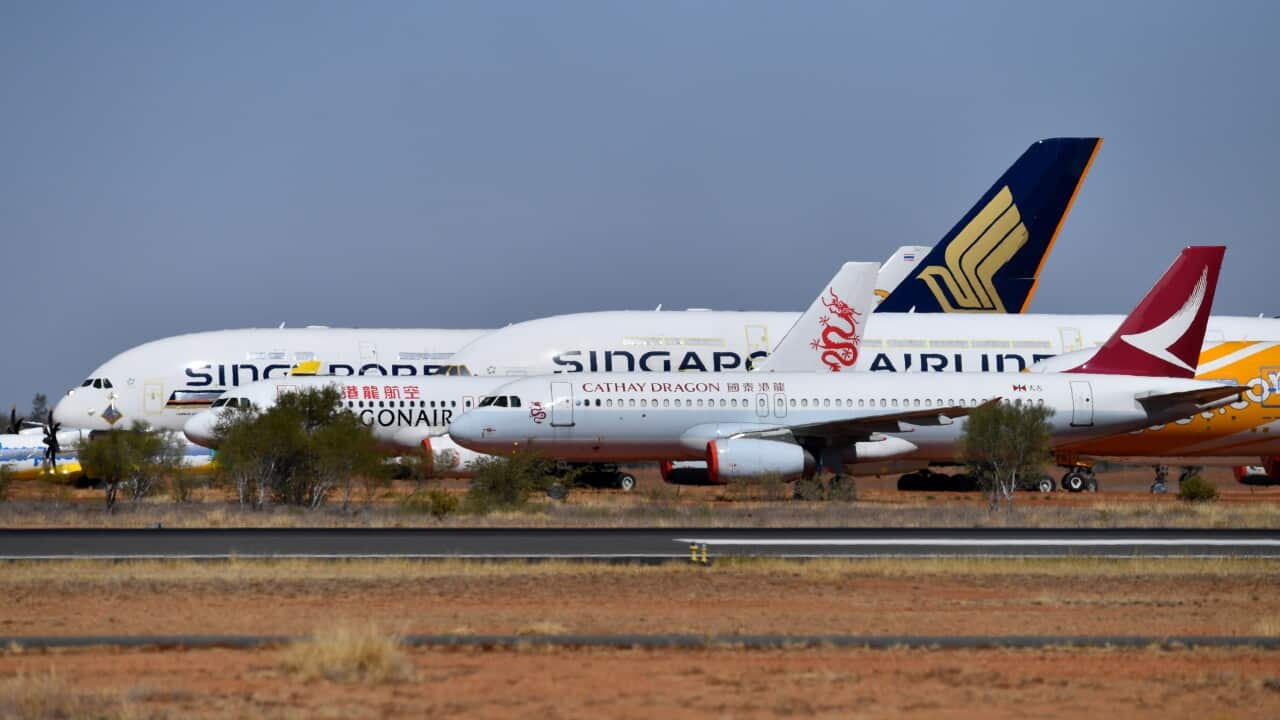The treaty, which was first created in 2019, commits nations to mutually recognising qualifications, with some conditions and includes provisions for non-traditional learning, such as online education, joint degrees, micro-credentials and offshore campus delivery.
It now includes 21 countries at various levels of participation, including Norway, Sweden, France, UK and Japan, although China, India and the US have not yet signed up.
Making the announcement on 24 January, said joining the worldwide treaty would make it easier for Australian education institutions and their students to be more globally mobile.

Federal Education Minister Jason Clare (left). Source: AAP / DEAN LEWINS/AAPIMAGE
“The 1.4 million students who study at our universities each year can now have even greater confidence that their Australian qualification, whether undertaken onshore, offshore or online, will be recognised in other countries, helping them to access higher education abroad, as well as pursue greater employment opportunities.”
Minister for Skills and Training Brendan O’Connor echoed similar sentiments.
“Australia has a comprehensive education and training system with established pathways across school, vocational education and training, higher education and employment."

Australian Employment Participation Minister Brendan O’Connor speaks during House of Representatives Question Time at Parliament House in Canberra. Source: AAP / LUKAS COCH/AAPIMAGE
Universities Australia, the peak body, has supported Australia’s endorsement of the treaty.
“Students from over 144 countries choose to study at Australia’s world-class universities, and this agreement ensures they can take their education, skills and knowledge anywhere, contributing to the development of new relationships and building understanding between nations," a statement from Universities Australia said.
“It also creates new opportunities for Australia’s universities to expand their operations overseas and contribute even more to the global challenge of educating more people around the world.
The news has excited Vishal Mittal, an Indian international student at the University of Canberra.

Vishal Mittal, 34, has recently graduated with a Master of Data Science from the University of Canberra.
"It is a big step forward and will help us achieve even more. It's making our future and career opportunities more open to the global platforms," he commented.
However, according to Sydney-based Ravi Lochan Singh, President of the Association of Australian Education Representatives in India (AAERI), the treaty will offer no benefit for students wanting to return to India.
LISTEN TO

'Australia must target skilled migrants, not just international students'
SBS Hindi
10/01/202308:04
“At this time Australian TAFE diplomas, and pathway-led bachelor's degrees and master's shorter than two years are not recognised in India," he said.
"If a student, having completed a bachelor's degree where he started the degree at a TAFE or a pathway provider but taken credits into a university degree, returns to India and then seeks a public sector or government job, then they face equivalence issues.”
Australia and India established a taskforce for developing education qualification recognition arrangements, and that is expected to be implemented this year.
International students from India are flocking to Australia at a fast rate.
According to the federal government, during January-November 2022, India was among the top five countries of origin for international students.

